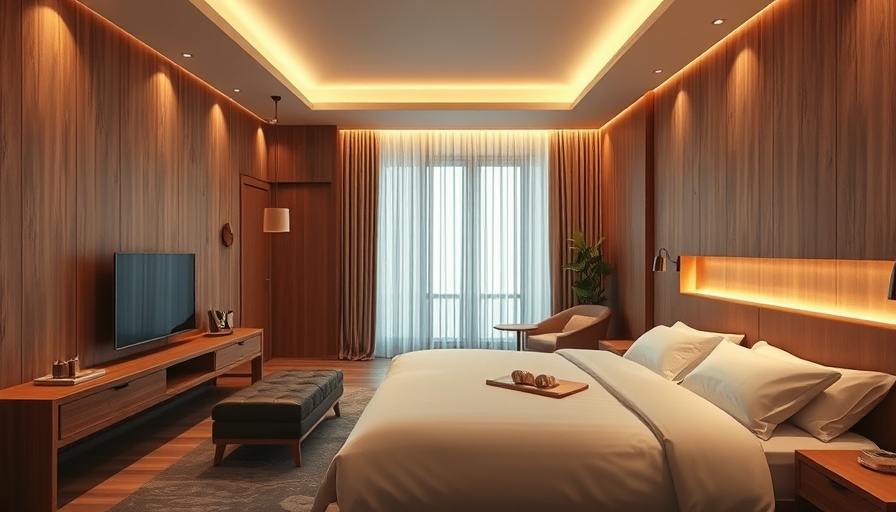
Exploring Sleep Hygiene: What’s the Big Deal?
For parents concerned about sleep and their children’s well-being, the recent launch of Equinox Hotels’ ‘Sleep Lab’ at $1,700 a night might raise eyebrows. But what exactly does this high-end sleep experience offer? In today’s fast-paced world, understanding sleep hygiene is pivotal to improving sleep quality and overall health.
Why Sleep Hygiene Matters
Sleep hygiene encompasses practices that allow for consistent, restful sleep. It isn’t just about how many hours you sleep but also includes the quality of that sleep. Good sleep hygiene can lead to improved focus, better mood, and enhanced productivity. For families with children dealing with sleep disorders or chronic insomnia, adopting proper sleep hygiene can be life-changing.
The Role of Sleep Tracking Technology
At Equinox, guests are treated to advanced sleep tracking technology that helps monitor sleep patterns. Such innovations highlight how data can improve our understanding of sleep disorders, like insomnia and narcolepsy. By tracking sleep, one can gain insights into parts of their sleep-wake cycle, leading to informed adjustments in routines that might enhance sleep quality.
Analyzing Sleep Quality Among All Ages
Sleep challenges are not just an adult problem; children and teens also face unique hurdles. In understanding adolescent sleep patterns, parents can help facilitate better bedtime routines that promote healthier sleep habits. Moreover, age-related sleep changes are notable; as we age, our sleep architecture can shift, requiring different approaches to ensure restorative sleep.
A Look at Global Sleep Patterns
The way we sleep is deeply influenced by cultural practices. Traditional sleep patterns can offer lessons in sleep hygiene, particularly for urban families who struggle with noise pollution and technology distractions. African sleep patterns, for instance, emphasize family connectivity during the night, showcasing how social interactions can play a role in sleep outcomes.
The Connection Between Sleep and Mental Health
Research demonstrates that sleep is intricately connected to mood disorders such as anxiety and depression. For parents, understanding this link can empower them to seek better sleep solutions for their families. Sleep deprivation doesn’t just affect physical health; it can also hinder emotional well-being, impacting children’s academic performance and social skills.
Practical Steps for Enhancing Sleep Hygiene at Home
Caregivers can implement several easy practices to enhance sleep hygiene. Keeping a consistent schedule, regulating bedroom temperature, and minimizing blue light exposure from electronics are just a few strategies. Encouraging mindfulness or relaxation techniques before bed can also foster a tranquil environment conducive to sleep.
What’s Next in Sleep Science?
The future of sleep medicine is promising, with emerging trends in technology and personalized medicine paving the way for tailored sleep solutions. As we continue to explore sleep through the lens of artificial intelligence and big data analysis, families can expect groundbreaking insights that improve collective sleep health.
As we conclude, it’s essential for parents to recognize the importance of sleep hygiene in supporting their family’s overall health. By investing in sleep education and utilizing tools like sleep tracking, caregivers can create environments that promote restful nights. If you’re intrigued by these insights, consider exploring various resources on sleep health to further enhance your family’s sleep experiences.
 Add Row
Add Row  Add
Add 




Write A Comment